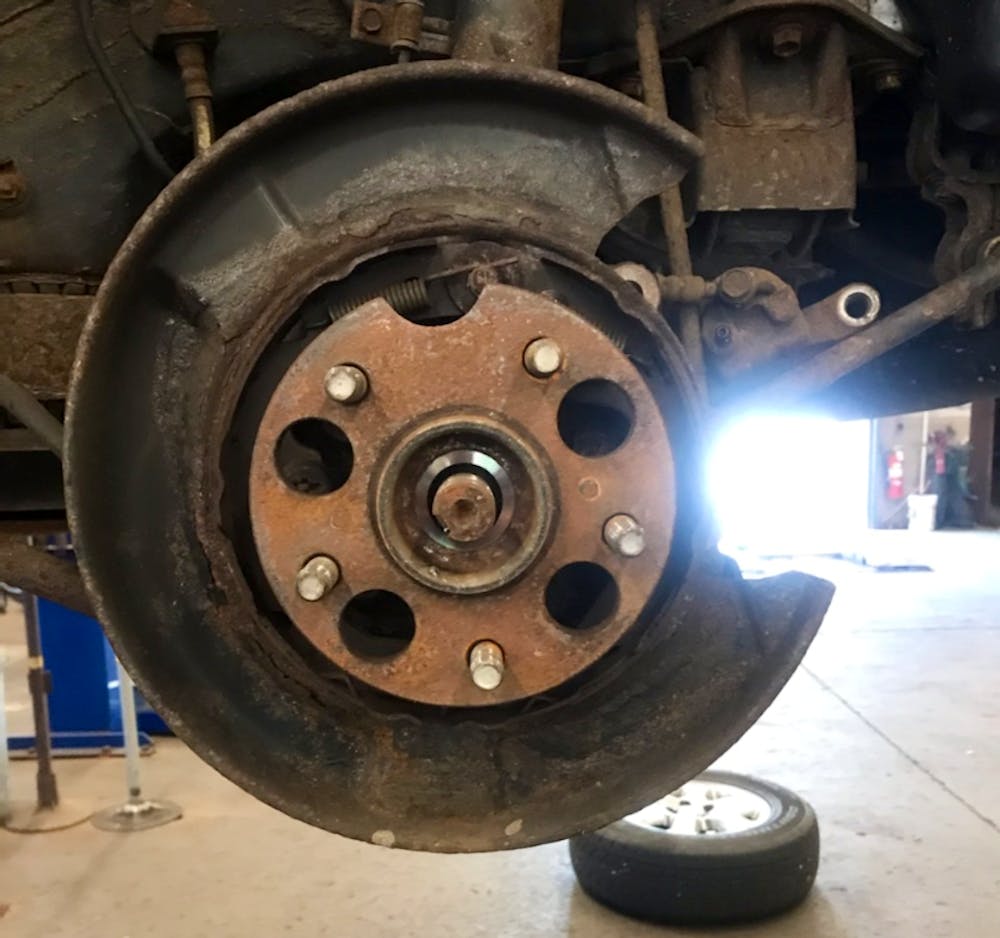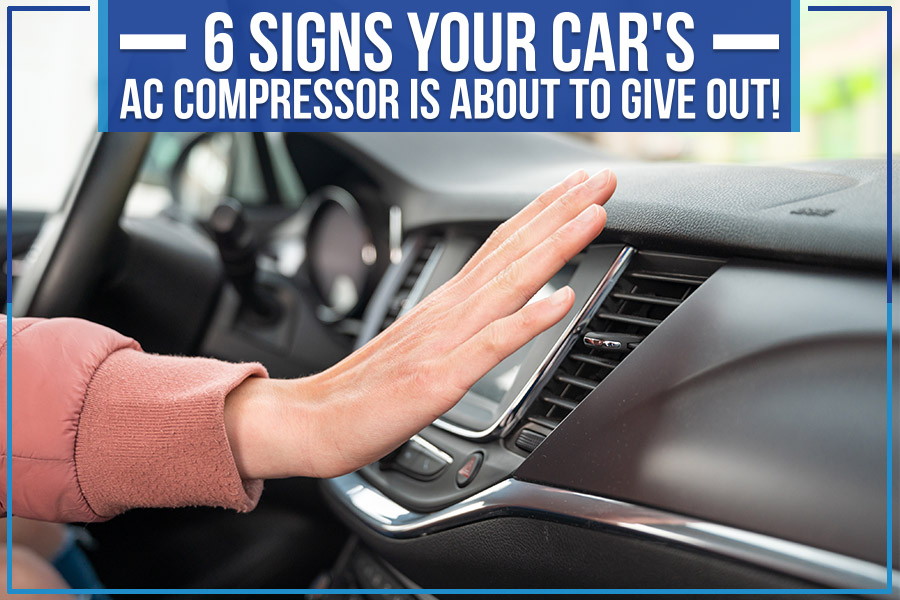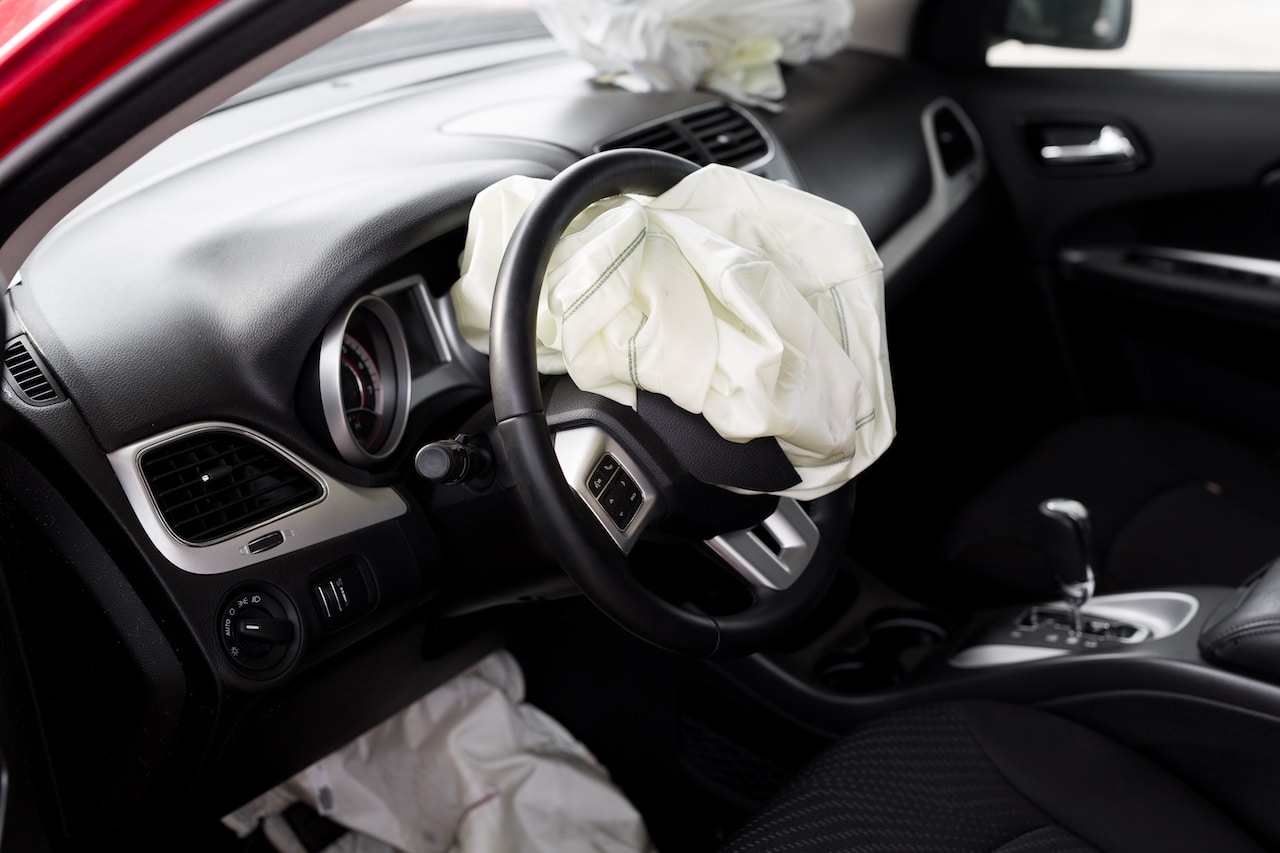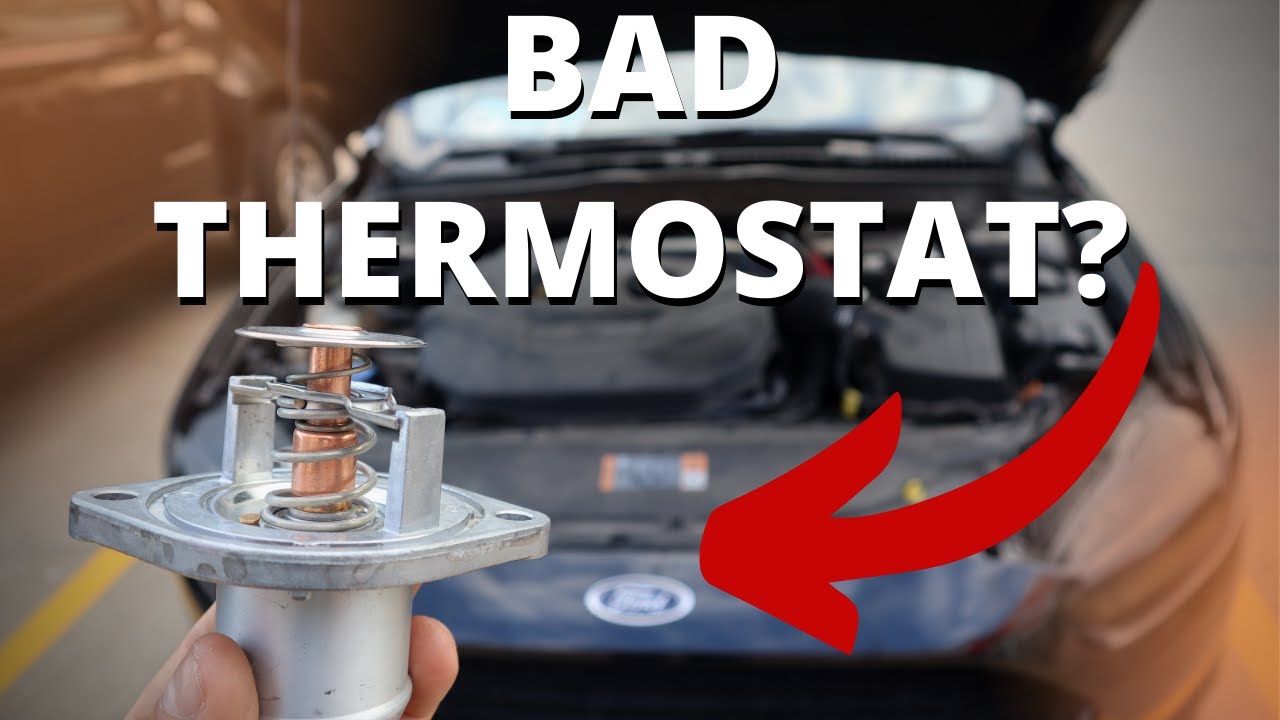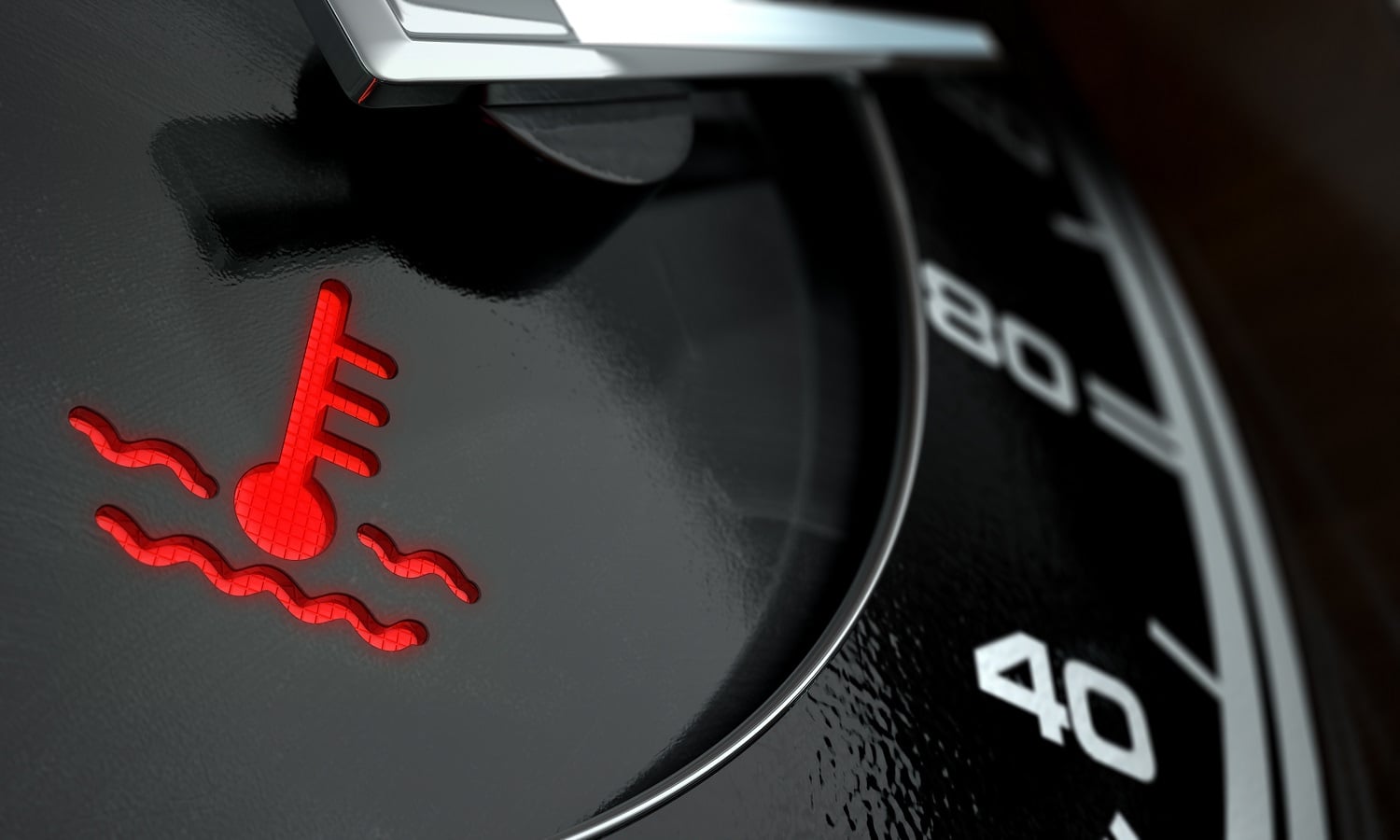How Much is It to Fix a Wheel Bearing
The cost to fix a wheel bearing typically ranges from $150 to $800. Factors like vehicle make, model, and labor rates affect the price.
Repairing a wheel bearing is a key aspect of maintaining your vehicle’s health and safety. A faulty wheel bearing can lead to decreased performance, increased tire wear, and in extreme cases, a wheel detaching from your vehicle. It’s a critical component that allows the wheels to spin freely and with minimal friction.
Ensuring your wheel bearings are in good condition will contribute to a smoother ride and overall vehicle efficiency. Car owners should note the importance of addressing wheel bearing issues promptly to avoid further damage and higher repair costs. Seek professional assessments to determine the exact cost for your specific vehicle and driving conditions.
Introduction To Wheel Bearing Repairs
In the heart of your vehicle’s hub, wheel bearings play a crucial role in smooth drives and safe travels. But like any car part, they can wear out, calling for a repair or replacement. Understanding the cost to fix a wheel bearing is key to maintaining optimal performance without breaking the bank. Let’s delve into the ins and outs of wheel bearing repairs.
Role Of Wheel Bearings In Vehicle Performance
Wheel bearings may be small, but they hold big responsibilities. They enable wheels to spin freely with minimal friction. Bearings support a car’s weight and maintain accurate tire alignment. Quality bearings contribute to fuel efficiency, tire longevity, and overall vehicle handling. Neglect them, and your car’s performance dips.
Symptoms Of A Faulty Wheel Bearing
- Unusual noises: A humming, rumbling, or growling sound that increases with speed can signal a problem.
- Steering issues: Loose handling or wandering steering wheel might be due to bad bearings.
- Uneven tire wear: A worn bearing can cause one tire to wear differently than others.
- ABS failure: Some vehicles have wheel bearing assemblies with built-in ABS sensors. When they fail, ABS can malfunction.
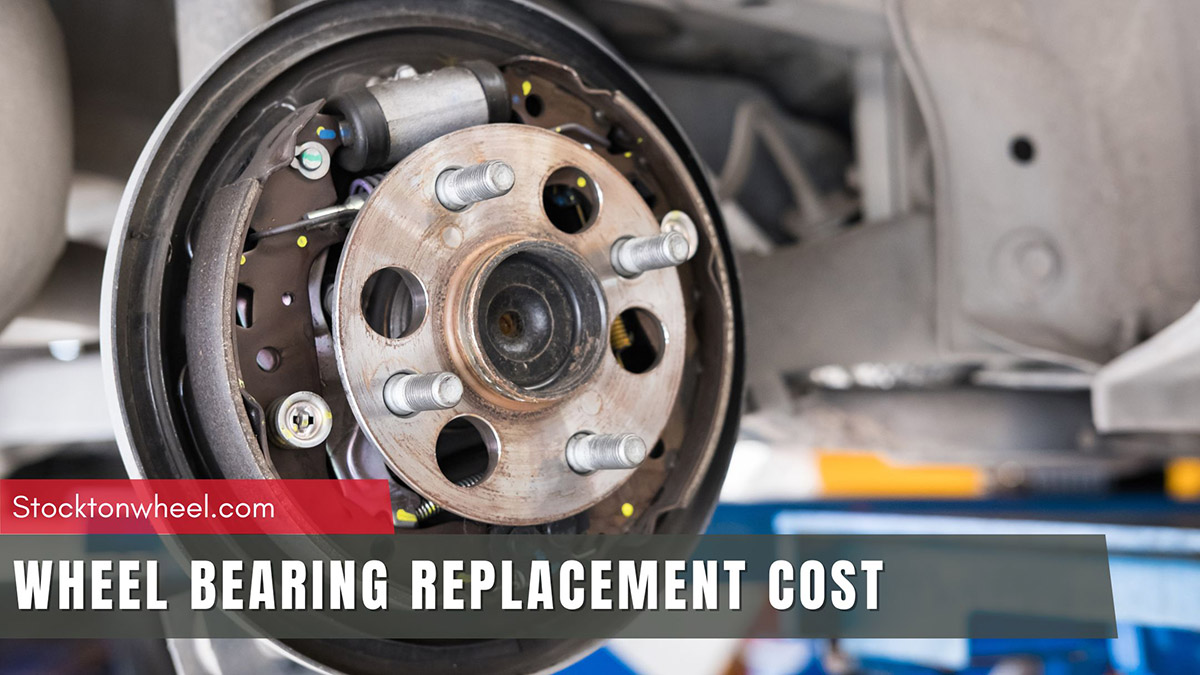
Credit: www.stocktonwheel.com
Factors Influencing Wheel Bearing Repair Costs
Understanding wheel bearing repair expenses requires considering several variables. Each factor can affect the overall price. Knowing these can help you budget for the repair appropriately. Let’s dive into what determines the cost difference.
Vehicle Make And Model Variations
Different vehicles have varied price tags when it comes to fixing a wheel bearing. Luxury brands generally have more expensive parts than standard models. Sports cars may also have specialized components that increase the cost. Here are common scenarios:
- Exotic vehicles: Custom wheel bearings may be pricier.
- Economy cars: Parts are often more affordable.
- Older models: Wheel bearing parts can be harder to find, impacting cost.
A specific table for brand and model differences helps illustrate this:
| Vehicle Type | Cost Range |
|---|---|
| Luxury | $300 to $600 |
| Sports | $200 to $500 |
| Economy | $150 to $350 |
Front Vs. Rear Wheel Bearing Costs
Front and rear wheel bearings may not cost the same:
- Front wheel bearings: Often integrated with the hub assembly, they can be costlier to replace.
- Rear wheel bearings: These are sometimes less complex and can be cheaper.
Cost separation is vital to anticipate expenses:
| Wheel Position | Cost Range |
|---|---|
| Front | $150 to $400 |
| Rear | $100 to $300 |
Stay informed about these factors for efficient financial planning when repairing your vehicle’s wheel bearings.
Price Breakdown Of Wheel Bearing Replacement
When your car starts humming or growling as it rolls down the street, it might signal a wheel bearing on its last legs. Beyond the noise, a faulty wheel bearing can lead to uneven tire wear or steering issues. Understanding the costs involved in fixing a wheel bearing is crucial for car owners. Let’s break down the price of wheel bearing replacement piece by piece.
Cost Of Parts: Bearings And Seals
Quality and vehicle type determine part costs. Wheel bearings and seals vary in price. Generally, expect to spend between $50 to $200 for a set of bearings, one per wheel. Seals, which prevent debris from entering the bearing area, typically cost around $10 to $30 each.
Price differences reflect brand and material. Premium bearings are pricier but might offer longer lifespan. Here’s a quick list of what affects part prices:
- Car model – some luxury vehicles require costly bearings
- Part brand – original equipment manufacturer parts cost more
- Bearing type – sealed bearings may cost more but offer better protection
Labor Charges: Understanding The Time Investment
The labor cost to replace wheel bearings can range widely. Mechanics typically charge $70 to $150 per hour. The time necessary to replace a wheel bearing may fall between 1 to 3 hours per wheel, leading to a labor charge of $70 to $450. Several factors influence these hours:
- Vehicle type
- Wheel location (front vs. rear)
- Mechanic expertise
Some cars have wheel hubs and bearings as one assembly, potentially simplifying the process. Service shops may offer a flat rate for wheel bearing replacement, differing from standard hourly charges.
| Service Item | Cost Range |
|---|---|
| Bearings and Seals | $60 – $230 |
| Labor | $70 – $450 |
| Total Estimate | $130 – $680 |
Total costs mix parts and labor. The final bill might range from $130 for a straightforward fix to $680 for a high-end vehicle or complex service circumstances.
Diy Vs. Professional Services
The costs of fixing a wheel bearing can vary greatly. Two paths stand before you – DIY (Do It Yourself) or hiring professional services. We’ll dive into both options. Understand your potential savings by going the DIY route, and the risks that follow.
Potential Savings of a DIY ApproachPotential Savings Of A Diy Approach
Going DIY could save you money. Here’s a breakdown:
| Part | Cost |
|---|---|
| Wheel Bearing Kit | $50 – $200 |
| Tools | $20 – $100 (One-time purchase) |
- No labor costs
- Use of owned or borrowed tools
- Possibility of discounts on parts
Risks And Challenges Of Self-repair
Trying to fix a wheel bearing yourself can be risky:
- Lack of expertise could lead to incorrect installation.
- Safety risks without proper equipment.
- Potential for more damage to your vehicle, leading to higher costs.
Consider these factors carefully. Weigh the potential savings against the possible risks.
Extending Wheel Bearing Lifespan
Keeping your car’s wheel bearings in top shape is crucial for a smooth ride. With proper care, you can save on repair costs. Here’s how to lengthen the life of your wheel bearings.
Maintenance Tips To Avoid Frequent Repairs
Regular Checks Are Key. Periodic inspections by a professional can catch issues early. This means problems get solved before they worsen.
- Listen for Noises, like grinding or clicking. These sounds can signal bearing wear.
- Keep Tires Properly Inflated. Correct tire pressure reduces strain on bearings.
- Balance and Align Wheels to spread weight evenly and minimize pressure on bearings.
- Clean Bearings if exposed to dirt or debris.
When To Choose Repair Over Replacement
Tight Budget? Repair might cost less than replacement. Get a mechanic’s opinion to make a smart choice.
| Condition | Repair | Replacement |
|---|---|---|
| Mild Noise | Possible | Not Yet |
| Severe Damage | No | Needed |
| Old Bearings | Not Advised | Wise Choice |
Note: Always consider safety. Severely damaged bearings require immediate replacement.
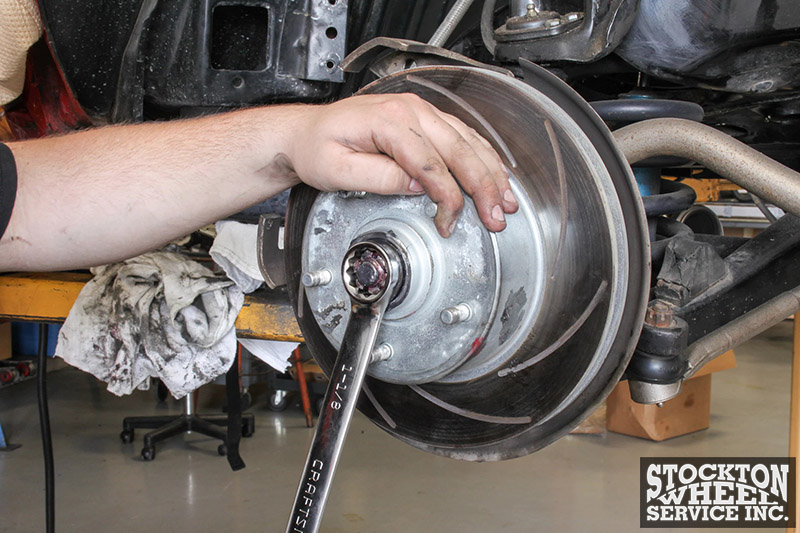
Credit: www.stocktonwheel.com
Navigating Warranty And Insurance
When your wheels start humming a pricey tune, the repair costs can be daunting.
Leveraging Warranties For Cost Reduction
Warranties are a saving grace when unexpected repairs pop up.
Many cars come with a manufacturer’s warranty that can cover wheel bearing repairs.
Some warranties last for 36,000 miles or three years, whichever comes first.
This is what you need to do:
- Check your warranty specifics
- See if wheel bearings are included
- Contact your car dealer for the next steps
Extended warranties and service contracts might cover you even further.
Read the fine print to understand all the terms.
Understanding Insurance Coverage For Bearing Repairs
Insurance policies differ widely.
Standard auto insurance may not cover wheel bearing repairs.
Here’s the drill:
- Review your policy or call your agent
- Inquire about coverage for repairs
- Know if your policy includes this part or not
Consider comprehensive car insurance for broader coverage.
Keep in mind, bear-related repairs due to accidents might be covered.
Contact your insurer to discuss.
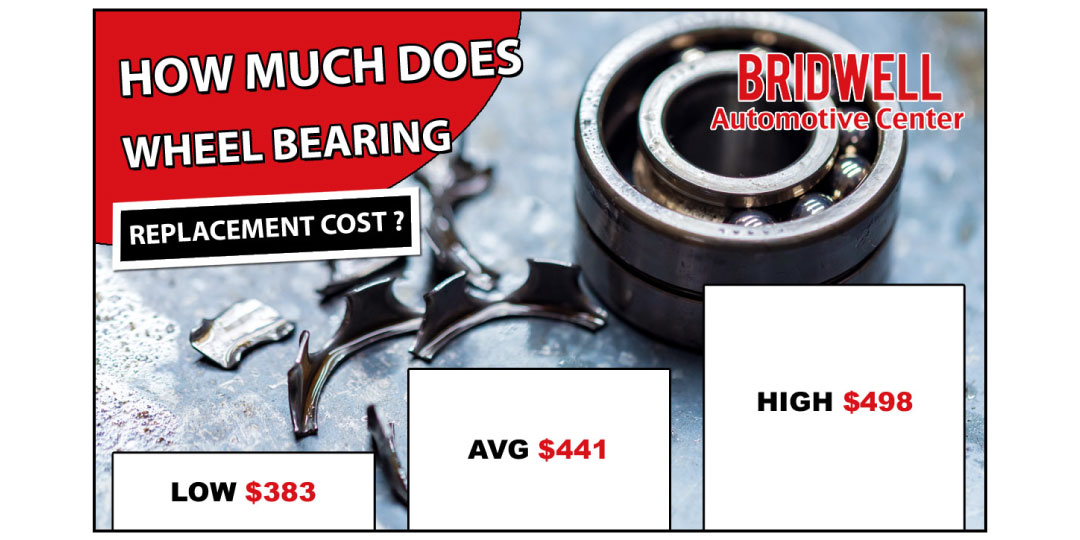
Credit: www.bridwellautocenter.com
Frequently Asked Questions On How Much Is It To Fix A Wheel Bearing
What’s The Average Cost For Wheel Bearing Repair?
The average wheel bearing repair cost ranges between $200 and $800. Factors like vehicle make, model, and whether you’re replacing front or back bearings affect the price. It’s typically pricier for luxury or performance cars.
Can I Drive With A Faulty Wheel Bearing?
Driving with a bad wheel bearing is risky. It can lead to wheel detachment or loss of control. If you suspect a wheel bearing issue, it’s best to have it inspected and fixed immediately to ensure your safety on the road.
How Long Does Replacing A Wheel Bearing Take?
Replacing a wheel bearing generally takes about 2 to 4 hours. This timeframe can vary based on the mechanic’s experience, the vehicle make and model, and the type of bearing system your car uses.
Do I Need To Replace All Wheel Bearings Together?
No, it is not necessary to replace all wheel bearings simultaneously. However, if one fails, it’s a good practice to assess the others, as they might be worn and close to failing too.
Conclusion
Repairing a wheel bearing isn’t a one-price-fits-all situation. Factors such as vehicle type and repair complexity influence costs significantly. For budgeting accuracy, consult a trusted mechanic. Remember, timely interventions prevent further damage and costlier repairs, ensuring your safety and vehicle longevity.
Keep rolling smoothly by taking wheel bearing issues seriously.

